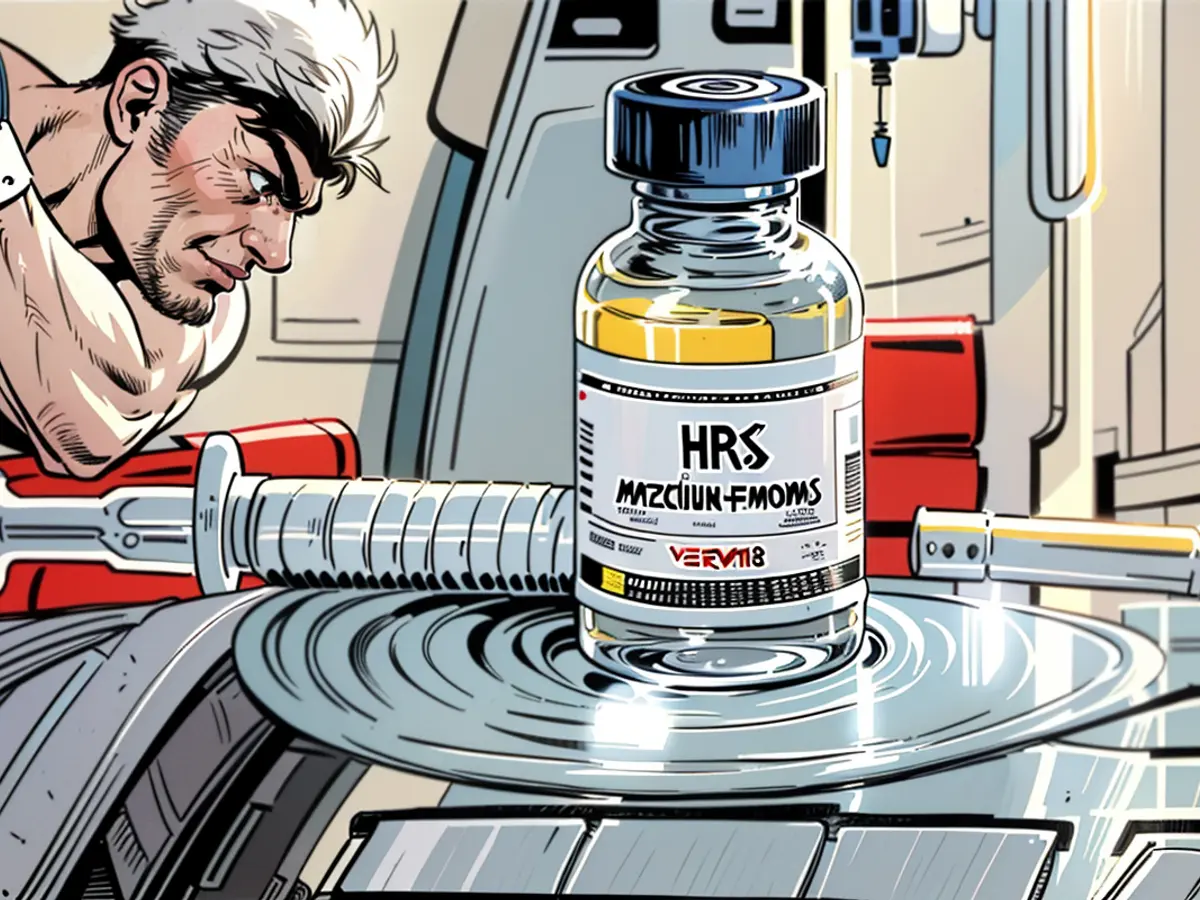Underutilization of HPV Vaccination Remains Prevalent
HPV, a common sexually transmitted infection, is often encountered by sexually active individuals globally. The Robert Koch Institute (RKI) suggests that almost everyone experiences HPV at least once in their life, with around 200 different types of viruses. While most infections cause no symptoms and disappear on their own, some types can lead to cancer, such as cervical, penile, and anal cancer. Additionally, HPV can cause cancer in the mouth and throat regions. Shockingly, half of all infection-related cancers worldwide are attributed to HPV, according to the RKI.
Fortunately, there's a vaccine that offers near-complete protection against specific HPV types. However, unfortunately, not enough people are benefiting from this protection. The Barmer health insurance company reports that only 60% of 14-year-old girls were fully vaccinated against HPV in 2022, and the vaccination rate for 13-year-old boys was only 25%. Although the HPV vaccination for boys has been recommended since 2018, the Barmer does not yet have reliable data for 2022's 14-year-olds.
Low vaccination rate is concerning
"The low vaccination rate is alarming," said Nobila Ouedraogo, a public health expert at the German Cancer Research Center (DKFZ) in Heidelberg. Despite a slight increase in vaccination rates in recent years, the pace of progress has noticeably slowed down, as per Ouedraogo.
The Standing Committee on Vaccination (STIKO) has recommended HPV vaccination for girls since 2007 and for boys aged 9 to 14 since 2018. Two doses of the vaccine are necessary for protection, requiring a minimum five-month interval between them. Missing a dose should be addressed by the age of 17.
Lack of information may be a factor
The Barmer study indicates that vaccination activity decreased from 2021 to 2022. Ouedraogo estimated that this decrease could be due to fewer doctor visits during the coronavirus pandemic. Other possible reasons include inadequate information, general vaccine fatigue, and the absence of school-based vaccination programs.
HPV viruses are primarily transmitted during sexual activity, according to DKFZ data. Both men and women can become infected, with different symptoms emerging based on the HPV type. Low-risk HPV types can lead to skin warts on the face, feet, or hands, as well as genital warts, which are usually harmless but may cause discomfort.
High-risk HPV types have no initial symptoms
High-risk types that can cause cancer exhibit no symptoms initially. Therefore, an HPV test has been a part of the early detection program for cervical cancer in women aged 35 or older for quite some time. Women between the ages of 20 and 34 receive a smear test from their gynecologist to detect any possible cell changes.
Estimates suggest that approximately 7,700 people in Germany contract cancer annually due to an HPV infection, according to the DKFZ. While cervical cancer—a malignant tumor of the cervix—was reportedly the most common cancer in women before a screening program in Germany, it has since become much less frequent. Experts expect the effects of vaccination to become evident in the coming years, according to the RKI.
Condoms provide limited protection
According to the DKFZ, condoms do not offer complete protection against HPV, making vaccination the most secure option. However, some parents find it challenging to accept that the vaccination can be administered as early as nine years old, said Tanja Brunnert, spokesperson for the Association of Pediatricians and Youth Physicians (BVKJ). "There's often significant resistance and even shame when discussing sexually transmitted diseases," explained Brunnert, who practices in Göttingen. "Many parents put off the vaccination until 12 or 13, which is one reason for the low vaccination rate. However, children respond well to the vaccine when they're still young. 'The sooner, the better.'"
Despite this, many parents remain skeptical about the vaccination. When the vaccine was first introduced, there were numerous critical voices—including from within the medical community, as per Brunnert. "This persists despite our knowledge of the vaccine's good tolerance and effectiveness." Therefore, it is essential for pediatricians and youth physicians to provide thorough education. Even though this can be challenging amidst their busy schedules, each appointment should be used to verify the vaccination status.
The low vaccination rate among girls is particularly concerning, as only 60% of 14-year-old girls were fully vaccinated against HPV in 2022. Furthermore, this lack of protection could lead to increased cases of HPV-related cancers among young women.







